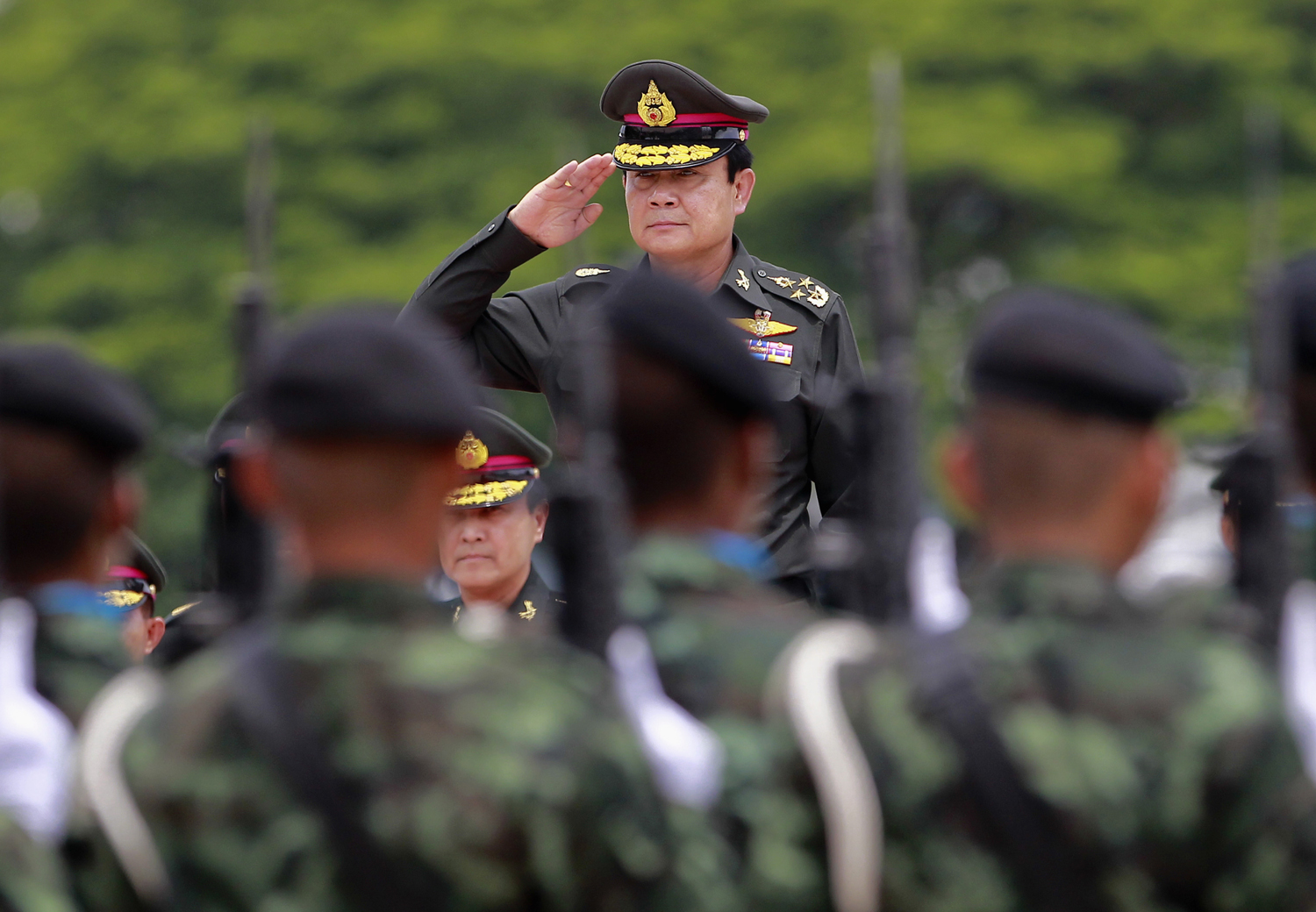
Thailand’s military strongman General Prayuth Chan-ocha was appointed the nation’s Prime Minister on Thursday morning, after securing a landslide vote from a legislature that was handpicked by the junta late last month.
The general, who skipped out on the parliamentary session to attend a military ceremony, was the only nominee up for the position. He received 191 votes from the 197-strong National Legislative Assembly in Bangkok.
“It was no surprise at all,” Paul Chambers, director of research at the Institute of South East Asian Affairs, tells TIME. “There’s no other figure that the establishment would be willing to put up and that most powerful Thais today would accept.”
Prayuth must now garner an official endorsement from the aging King Bhumibol Adulyadej — a formality that is all but certain to be granted to the general, who appears to have curried favor with the palace’s inner circle.
After receiving the King’s backing, Prayuth will then hold Thailand’s three most powerful positions as the nation’s top military commander, junta chief and Prime Minister.
“I can’t think of any other time in Thai history that we’ve had a junta leader, Prime Minister and army commander all at the very same time,” says Chambers.
Prayuth has been steadily tightening his grip on the country since launching a coup in late May, ousting an interim government that had been largely eviscerated in the face of judicial rulings and mass demonstrations backed by the Thai elite.
Since seizing power, the junta — officially known as the National Council for Peace and Order (NCPO) — has promulgated an interim constitution that was labeled “a charter for dictatorship” by Human Rights Watch. It has also led a vicious crackdown on political opponents, journalists and academics critical of the putsch.
“Fundamental rights and freedoms, essential for the restoration of democracy, are still severely suppressed by the military authorities,” says Sunai Phasuk, a researcher with Human Rights Watch in Thailand. “Political activity, public assembly and expression of different opinions are not tolerated. Opposition to the coup and the NCPO is criminalized and subject to prosecution.”
May’s coup was the 12th successful military putsch in Thailand since the end of absolute monarchist rule in 1932.
More Must-Reads from TIME
- Cybersecurity Experts Are Sounding the Alarm on DOGE
- Meet the 2025 Women of the Year
- The Harsh Truth About Disability Inclusion
- Why Do More Young Adults Have Cancer?
- Colman Domingo Leads With Radical Love
- How to Get Better at Doing Things Alone
- Michelle Zauner Stares Down the Darkness
Contact us at letters@time.com